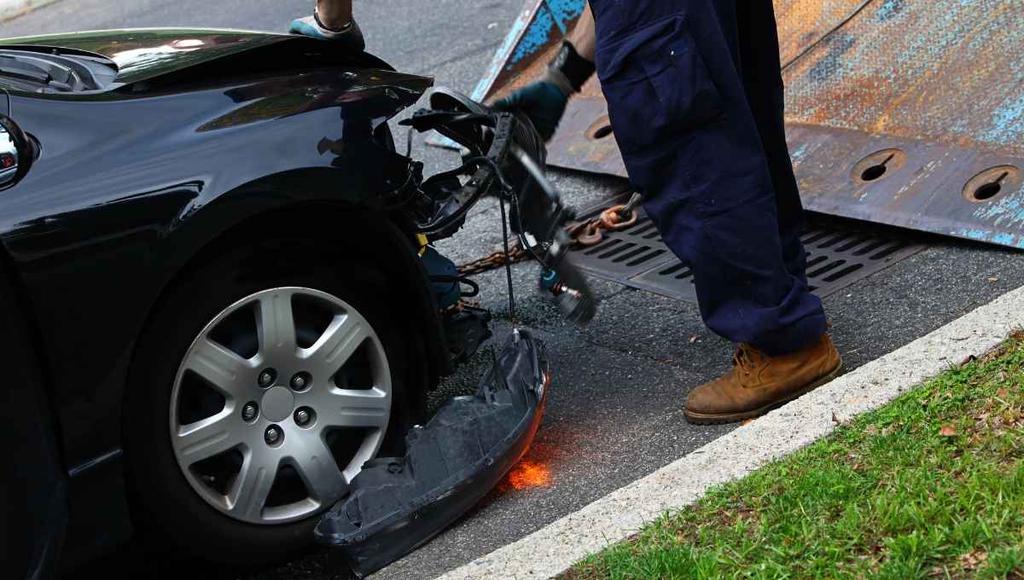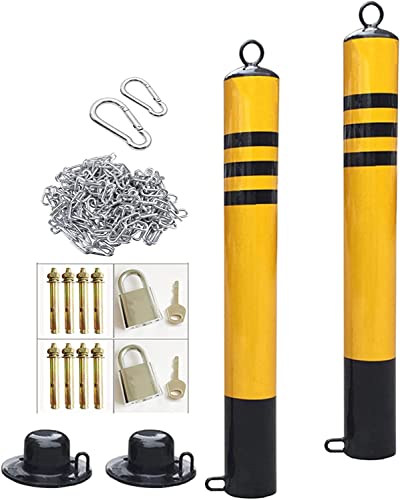

Parking is a common issue for renters, and many people wonder if their landlord has the right to tow their car. Understanding the rights of both landlords and tenants is important in resolving any parking disputes.
In most cases, landlords cannot tow a tenant’s car without proper legal authorization. However, there are exceptions to this rule, such as if the tenant is parked in a fire lane or if the car is blocking access to the building. It’s important to review your lease agreement and local laws to determine what your rights and responsibilities are in regard to parking on the property.
Having the proper insight into this issue is highly confusing, which is why we took the challenge of trying to clarify it for you. Keep reading because you’ll find out when a landlord can tow, what can count as an unlawful tow, and what rights you hold after someone towed your car.
This post contains affiliate links. This means Household Blogger may earn a commission should you make a purchase using any of our links. Please refer to our full affiliate disclosure policy for full details.
Here’s a Quick Pro Tip!
Your landlord can’t tow your car without a good reason, such as a violation of a rental agreement or if you parked your car illegally. Examples of illegal parking include parking on a crossroad, on the sidewalk, in front of a gate, and other similar places.
1. Vehicle Anti-Theft Lock – They can’t take your car without being able to move its wheels. Use this to prevent theft and other similar incidents.
2. Full Cover Steering Wheel Lock – Full cover? Don’t mind if I do! Neither thieves nor car towers will see this coming.
3. Outdoor Security Cameras – Let them get caught! Record the moment when your landlord decides to tow your car illegally.
Before we know what to do after our landlord tows our cars, it’s important to understand the laws that may or may not allow your landlord to proceed with such actions. So, let’s debunk this issue below.
A landlord is allowed to tow your car under certain circumstances. Most of these circumstances include the lack of compliance with parking policies and other things included within state law.
A landlord could tow your car if you parked it illegally. An example of illegal parking is parking in front of a fire hydrant or a gate. In such cases, they can call a towing company to remove your car from the premises without a previous warning.
A landlord can only tow your car without notice if there is a valid reason behind it. Usually, most state laws only allow this when your car is illegally parked within their premises or if you’re breaking the parking policy established within the lease.
This event is most common with shared driveways. Your landlord may have put a limit inside the lease about when and where you should park your car. And, if you go beyond these limits, you risk having them tow your car.
Usually, the best way to avoid these issues is by having the landlord put up a fence or divide the driveway using a driveway divider. However, aside from the above, other circumstances may require your landlord to hand you a two-day prior warning.

Your landlord can tow your vehicle, but it has to be under certain requirements established by most state laws. The only way they can do it without further legal repercussions is when there is a rental lease violation.
Suppose the lease agreement you consented to established certain parking policies, and you violated them. In that case, the landlord has an absolute right to call a towing company and have them remove your vehicle.
The same thing happens with guests you bring over. If they park their car outside the property without following the guidelines established within your rental lease, they can have their car towed by your landlord.
A landlord can only tow your car from your driveway if you didn’t comply with the agreement established in the rental lease you signed or if the driveway you parked in wasn’t an allowed space.
Always know your lease clauses and agreements to avoid getting your car towed from the driveway. Keep them in mind always so that you can avoid future conflicts and complications. If you share a driveway, try to get a divider to avoid further conflicts.
Surprisingly, some states allow landlords to tow your car because of expired tags since your car can be seen as if it was abandoned or as a public disturbance. However, other states have established that this practice is illegal.
In this case, your landlord has to give you a prior warning. For example, Texas law establishes that your landlord has to notify you of the issue 10 days before they decide to tow your car.
In the case of the state of Nevada, your landlord must put a note on your car that states the reason behind its towing. And, if they truly wish to proceed, the car must have a 60-day expired tag. Anything less than that will make it count as illegal towing.
A landlord could tow a tenant’s car if they violated a parking policy they agreed upon once they signed the rental lease. However, they can also tow a tenant’s car if they park illegally on the premises.
For example, you risk getting your car towed if you block gates, a fire hydrant, or a driveway. Since this practice counts as illegal parking, your landlord is entitled to tow your car without prior warning, and the law protects them.
But, a landlord can also tow a tenant’s car if they fail to comply with the agreement in the rental lease. For example, if your landlord allowed you to park in a shared driveway, but you took part of the space that belongs to him, they can tow your car.
However, these issues can be avoided when there is something dividing your driveway space from his—for example, a chain divisor or a detachable fence.

A landlord could tow a car because of the lack of a license plate, but this depends on the state where you live. While some states allow it and even protect the landlords, others choose to protect the driver by making this illegal.
For example, in Texas, a landlord can’t tow a car because a tenant doesn’t have a license plate. And if they do, they have to give the tenant a 10-day prior notice. If they fail to, the tenant has a right to sue them and request compensation for towing fees.
Now that you know about your landlord’s possible motives for towing your car and whether it’s legal, it’s time to see if the same applies to apartment building complexes. So, let’s discuss them below.
An apartment complex could tow your car without notice if they find that you are violating the law or the lease you signed with them. Although, most states require them to notify their tenants in advance.
For example, your apartment complex may choose to tow your car because you violated a parking policy, such as not using your parking tag or because your car is deemed non-functional. The latter means that your car is a disturbance to the building.
An apartment complex can tow your vehicle by hiring a contracted towing company. Although, the reasons they have for towing your car must be valid. For example, if they found that you were violating the rental agreement.
Many apartment complexes have rules regarding how and where you park. For example, your apartment complex can assign you one or two parking spaces and give you specific numbers that will tell you where they are located within the complex.
If you park in someone else’s parking, whether by accident or not, there is a high chance that your car can get towed because it would violate parking policies within the building premises. This can also happen if you don’t use an approved parking tag.